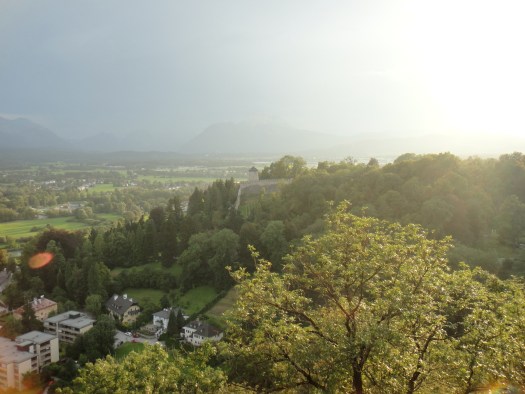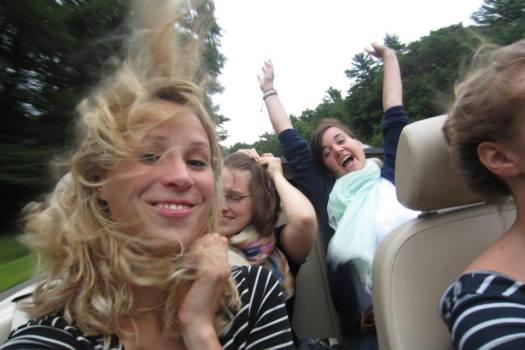Today as I sat at my students’ high school graduation, I thought: I hope I never have to give a commencement address.
It doesn’t matter how engaging the speaker, how moving his or her message. Really, what we want to see is that student’s name called, watch her walk across the stage, get the diploma, move her tassel to the left, and throw her cap in the air.
We want to witness that smile that can’t be stopped because the work is done. Finally.
Only so much wisdom can be digested in moments of anticipation.
This was the fifth graduation I’ve been a part of — whether as a student or as a faculty member — and I remembered my own high school graduation. Eight years ago.
I remember singing a song that was entirely inappropriate for a graduation because I’d been asked to sing and I didn’t have a lot of repertoire.
No one wants to hear “Pur di cesti, o bocca bella” when their children receive their diplomas.
And I have yet to see a flattering mid-singing photograph.
I remember the strangest things about that day. I remember being so happy, driving my bug with the top down. I remember crunching a row of baby turtles on my way to school and crying because I couldn’t believe I’d been so careless.
I remember hardly believing high school was over and I remember being terrified of what September would bring.
I remember eating a celebratory lunch at Striper’s restaurant and overlooking the river.
But mostly, I remember feeling very grown up.
~ ~ ~
I don’t think I will ever be asked to give a commencement address. I’m more of the pep-talk teacher, the one who encourages in one-on-one conversations.
But if I did give one?
If I did try in ten minutes to bestow some sort of wisdom on young minds which couldn’t bear to handle one more ounce of wisdom?
I’d probably say the following:
Chill out. Please.
I know you think you are grown up. And you are, sort of. But not really. And by the way, I haven’t met many people who feel it and are.
I know you feel sexy in those five-inch heels, but trust me, you look far more elegant in flats and confidence.
People tell you “don’t have any regrets.” I tried that — I tried living in a place of denial, in a place that said, “I did everything right and I wouldn’t change a moment.” This place does not really exist. You will have regrets. It’s about what you do with that regret that matters.
You are full of ideas and dreams and expectations. (I still am. I hope I always am.) But wait. You might study music and never sing at the MET. You might get your dream job and loathe your existence. It might end up that college isn’t the road you should take. Don’t be embarrassed that you were wrong. Embrace the second chance.
Do not be surprised when you learn the same lesson twice. Or three times. Do not think you are dumb or naive. Sometimes it takes more than one experience to hammer in a new idea, a fresh lesson in growth. Let yourself be imperfect, but don’t let yourself stay exactly the same imperfect.
And this one might be the most important:
Choose without knowing the future. Take action without waiting for lightning. Make the best possible decision with the knowledge you have, and when you look back, give yourself grace. Do not chastise your past self for making the best possible choice with limited sight. This will paralyze you.
~ ~ ~
In May of 2016, I will walk across the stage and receive my Master’s diploma. There will be a commencement address. I will try to listen. I will strain forward or sit back with the ease of taking it in.
But my mind will be filled with life — my past, my future — and most likely, I will be feeling exactly the way my seniors did today: excited, a little afraid, but mostly hopeful.























